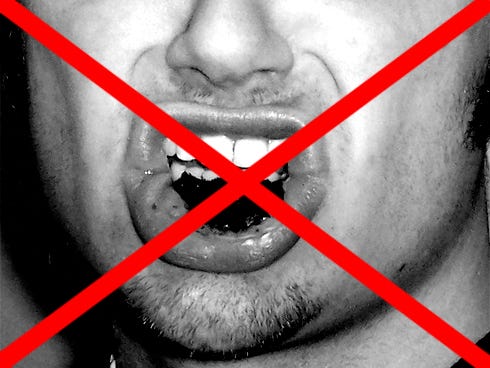
FORT WALTON BEACH — Okaloosa County Tobacco Free Partnership and the Florida Department of Health's Bureau of Tobacco Free Florida are raising awareness about the dangers of smokeless tobacco, like chew and dip, during Through with Chew Week, Feb. 16-22.
The campaign was created to reduce the use of smokeless tobacco among young people and help combat this deadly addiction. Tobacco Free Florida aims to help combat this deadly addiction, especially within baseball.
"Athletes are common role models for youths," stated Dr. Karen Chapman, Florida Department of Health director in Okaloosa County. "Youths often mimic the behaviors that their role models display—including tobacco use. Smokeless tobacco has several harmful chemicals that can lead to severe health concerns."
To raise awareness about the dangers of smokeless tobacco use in baseball, Okaloosa County Tobacco Free Partnership is hosting a Through with Chew awareness initiative at Northwest Florida State College. The initiative will display a banner at the NWFSC baseball fields highlighting the dangers of smokeless tobacco during Through with Chew Week.
Although youth cigarette smoking rates in Florida are at an all-time low, 7.8 percent of high school students in Okaloosa reported current use of smokeless tobacco products in 2014, according to the Florida Youth Tobacco Survey.
Professional baseball players, who have traditionally had high levels of smokeless tobacco use, serve as role models for impressionable youth. Since the 2012 season, professional baseball players have been prohibited from carrying tobacco tins in their uniforms and using smokeless tobacco during televised interviews, at autograph signings and other events where they meet fans, or at team-sponsored appearances. However, these restrictions did not eliminate smokeless tobacco use on the field or in the dugout.
At least 28 cancer-causing chemicals have been identified in smokeless tobacco. Smokeless tobacco users have an 80 percent higher risk of oral cancer and a 60 percent higher risk of esophageal cancer and pancreatic cancer compared to non-users.
Currently, there is no scientific or medical evidence that proves smokeless tobacco use is an effective method to help people quit smoking. Floridians who want to quit any form of tobacco have access to the state's free and proven-effective resources.
CALL: 1-877-U-CAN-NOW to speak with a quit coach who will help you assess your addiction and help you create a personalized quit plan.
CLICK: http://www.tobaccofreeflorida.com/webcoach.
This article originally appeared on Crestview News Bulletin: Why you should quit chewing smokeless tobacco
